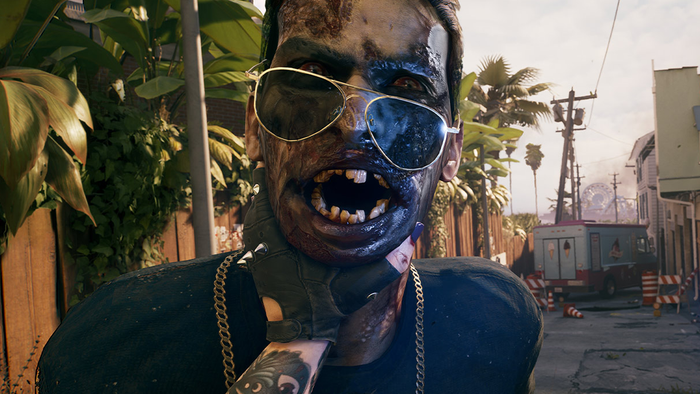Gamasutra's Best Of 2007: Top 5 Most Significant Moments In MMOs
Continuing Gamasutra's year-end retrospective, Michael Zenke takes a look back on the biggest moments of the year in massively multiplayer online games, from the surprise successes of small, free-to-play titles like MapleStory and RuneScape

[Continuing Gamasutra's year-end retrospective, discussing notable games, developers, and industry figures of 2007, MMOG Nation's Michael Zenke takes a look back on the biggest moments of the year in massively multiplayer online games, events that heralded the five biggest trends in a year that history may show as a turning point for the genre.] This has been an unbelievable year for Massive games. Unfortunately, I don't mean that in a positive sense. When I made a few back-of-the-napkin prognostications about the coming year in December of 2006, I thought I was being a huge sourpuss. It turns out I wasn't nearly sour enough. Closures, projects failing in their development phase, the departure of notable individuals from high-profile titles, weak launches, minor scandals, a number of games that were just plain delayed ... it's been a hell of year. It wasn't all bad, of course. Specifically the mainstream acceptance of World of Warcraft and the successful launch of Lord of the Rings Online speak to future successes for the genre. There have also been several 'dark horse' contenders showing their heads, plenty of new companies throwing their hats in the ring, and (finally) some measure of success for foreign games imported to the states. Despite all these negative signs, I see 2007 as generally positive. The Massive game industry is still in its infancy, in many ways, and these failures are hard growing-up type lessons. I've tried to keep that in mind when constructing a list of the Top Five MMO Trends of 2007. In the spirit of previous Top Five articles from other observant commentators, these points will try to sum up the most impactful events of the year for Massive gamers and the hobby they love so much... with an eye to what lessons we should draw for the future. Let's hope looking back on 2008 will be more about sugarplums and less about coal. 1. 'Little' Games Get Huge All year long there's been a growing swell from the 'underbelly' of the Massive gaming scene. While people focus a lot of attention on World of Warcraft and other AAA titles, games like Runescape and MapleStory have quietly been accruing huge numbers of players. While those numbers have been building for some time, it feels like this is the first year that commentator in and out of the industry have realized the full import of these games. WoW may be an 800-pound gorilla, but Runescape's million-plus player base isn't a housepet either. What's especially interesting is how the success of these 'small' titles mirrors a warming attitude toward imports in the states. MapleStory is easily the highest profile of these, claiming over 3 million subscribers in North America since its launch here early this year. As the concept of free-to-play games gained popularity among the web-savvy teen and 'tween markets, 2007 saw an explosion in 'garage-coded' games going big-time. Maid Marian's Sherwood Dungeon might the most noteworthy of these games, all done done on the cheap, in Flash, and hitting huge numbers of players. This was also the year that saw virtual worlds hit the big time. Whether we're talking about the over-hyped Second Life, the announcement of Metaplace, or the under-rated Club Penguin, social online experiences have definitely become front-page news. Killer apps like Webkinz and BarbieGirls pushed the folks who wouldn't necessarily identify with swords and sorcery into an avatar, and primed them for future (subscription-based?) online exploits. Lessons to learn: Graphics aren't everything. Free is the best price. Chat is one of the most important part of MMO game design. 2. Messy MMO Failures It's easy to point at where this trend began in 2007: Vanguard. Every rumor you heard about Sigil and its founders was probably true, and only the largesse of SOE kept the title alive past May. Then you have the explosion of Perpetual Entertainment, a cataclysm that killed Gods and Heroes, may have "nerfed" Star Trek Online into a casual game, and has prompted an already controversial lawsuit. Gods and Heroes wasn't the only high-profile failure this year; Auto Assault launched in such a lackluster fashion last year, it begged the question: "What happens if they launch an online world and nobody comes?" The answer: they shut it down. It came down to the simple reality that neither NetDevil nor NCsoft had enough interest to keep it running, and so the players who liked that game lost out. An unsuccessful product shutting down may not seem surprising, but the last AAA online world to shut down was Asheron's Call 2 in 2005. Before that, I can only think of a handful of other titles that were in active operation which were closed down. And there are a few games that are now the online equivalent of Schrödinger's cat. Is Marvel Universe Online still in production, or has no one yet formally informed the public of that the project didn't make it? The shakeout is not, I think, unexpected by industry onlookers. Just the same, they're sobering signs of the stakes in 2008. Lessons to learn: High profile doesn't mean low risk. You need more than Vision(tm) to make a game. Silence is not golden. 3. Warcraft's Mainstream Success That World of Warcraft is still doing well, some three years after the game's launch, would be a gross understatement. The almost flawless launch of The Burning Crusade expansion in January kicked off a year of amazing in-roads to mainstream culture. The South Park episode, the Toyota commercial, the Mr. T/Shatner spots... any Massive gamer that still wants to sit in a corner and feel misunderstood is missing the point. Once the Shat has done a Shaman impression for your game on national television, you're a permanent part of popular culture. It's that simple. The question becomes, was this year's in-roads into mainstream consciousness WoW-specific, or something that the genre as a whole has accomplished? Do parents see the connection between their kids playing Webkinz and this sword-and-sorcery thing that Mini-Me is pimping? 2008 is primed to be an even better year for World of Warcraft with a noticeably faster 1-60 experience, a finely tuned set of 60-70 zones, and the promise of a brand-new expansion to draw even more players into the world of Azeroth. If Activision Blizzard doesn't announce 10 million players sometime next year I'll be awfully surprised. Lessons to learn: Polish is king. Mr. T is funny. I am the law-giver. 4. Big Companies Fight MMO-Style Activison Blizzard is, of course, a company that didn't exist as of two months ago. The merger of the publisher and Vivendi's best-known subsidiary was not only surprising, it offers up another insight into what it takes to compete in this marketplace. Facing off against the new titan is the old one: EA. Electronic Arts has its own MMO designs as well, with BioWare's title waiting in the wings and Warhammer Online garnering more fan enthusiasm with every month that passes. Warhammer's delay, rather than being a negative sign, is in my view a very good thing. It shows that EA understands the commitment it's made. Giving Marc Jacobs and his team the chance to get things right before the game sees retail launch is a sure sign of maturity in the EA managers handling the game. From the content we're now being shown, it's fairly clear that only two thirds of the game was "ready" at the time the game was due to launch... and even that is giving them the benefit of the doubt. Even just the couple of months since the launch date went past has seen leaps and bounds in new content. By mid-year, they should have quite a product on their hands. Which makes Mythic and Blizzard even more directly in competition. Warhammer's release will be the first real attempt to imitate World of Warcraft's success in western markets. The producers may talk about WAR being Led Zeppelin to WoW's Beatles, but I'm sure the hope at EA is that this game will be another multi-million player juggernaut. Blizzard's unnamed in-development MMO may well be a direct competitor for BioWare's game, as well, giving the two giants even more to skirmish over. In one short year we've seen the creation of epic competition for EA in the single-player realm, and the beginnings of a worthy adversary for Blizzard. It's going to be a heck of a fight. Lessons to learn: Getting it right is worth any price. These things print money. The unstoppable force, meet the immovable object. 5. The Question of How To Pay At Austin GDC there was a panel on the last day of the event ostensibly intended to discuss the 'biggest opportunities' in online games. The reality of it was that the table was stacked with Marc Jacobs (a staunch opponent of Real Money Transfer) and two big proponents of microtransactions: Raph Koster and Eric Bethke. What resulted is described on Gamasutra as "a tussle for the future of online games". That one moment nicely summed up possibly the most important trend of this year, and speaks volumes about what we're going to be talking about in 2008. The fight that day was about the value of paying a flat subscription fee versus microtransactions, as seen in games published by Nexon. Blizzard's well known acceptance of both models is an exception, as most companies choose one or the other as their business model. Ultimately, this may be a question that's out of the hands of the designers: American players are already indicating their love of micropayments and RMT by heavily playing newly arrived games of this type. Despite lawsuits and crackdowns, people are still paying real money for gold and other online currencies. While I think it's unlikely we'll see many companies openly accepting gold sellers in their games, there are a few who have already begun to walk that path. The nebulous acceptance of the newly announced Live Gamer service by Sony Online Entertainment and Funcom speaks to the kinds of arrangements we might see in the future. Lessons to learn: The only thing better than free is micro-payments. Players secretly like paying for gold. Celebrity game designer deathmatch would make an awesome show. Despite the mixed news, 2007 was a big year for the Massive gaming genre. Even if it remains to be seen whether mainstream acceptance of MMO games is all that we could hope for, gamers are definitely starting to get on board. The ranks of online gamers grows every year. From all accounts World of Warcraft's success is not coming at the price of market viability for other games the way it was once feared. The only explanation for this is that ever more gamers are turning to online entertainment as a way to connect with their fellows. Barring any huge or unexpected events, 2008 is going to be another amazing year for Massively Multiplayer Online Games. [Do you agree or disagree with these picks? Feel free to sign on and comment below. Just in case you might have missed it, we wrapped up our initial list of Top 5s, as well as our top 10 games of the year, in a feature which debuted last week. In it you'll find our Top 5 Downloadable Games, Top 5 Most Affecting Characters, Top 5 Overlooked Games, Top 5 Trends, Top 5 Developers, and Top 5 Freeware Games.]
About the Author(s)
You May Also Like













